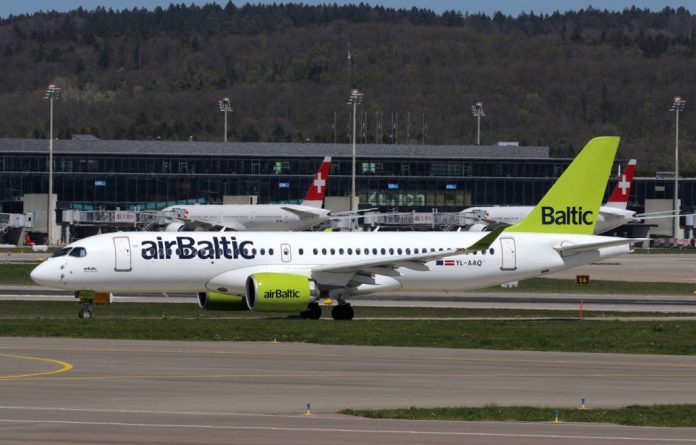Aircraft overflying the Baltic region are reporting a growing number of missed or fake GPS signals, and Russia is considered the most likely culprit, POLITICO reported.
Episodes of blackouts, known as GPS jamming, have occurred regularly since the conflict between Russia and Ukraine began in February 2022. The interference appears to be concentrated around Russia’s Kaliningrad exclave, a key military area for Moscow.
Dana Goward, president of the US-based Foundation for Sustainable Navigation and Synchronisation, a lobby group for GPS users, said that “Russia is regularly attacking the aircraft, passengers, and sovereign territory of NATO countries.” He also added: “There is one instance of accidentally jamming we know of that almost resulted in a passenger aircraft impacting a mountain.”
The EU Aviation Safety Agency (EASA) is looking into the issue, but so far regulators have said that GPS problems do not pose a risk to flights, but the incidents of jamming reported by pilots “have been increasing steadily since January 2022,” Eurocontrol, the European Organisation for the Safety of Air Navigation, informed.
However, the problem is now becoming much more pronounced, as Eurocontrol confirmed that there were almost seven times as many incidents in the first two months of this year as in the first two months of 2023:
During the first two months of 2024, EVAIR recorded high increases in GPS outages reports. In absolute figures we received 985 GPS outages compared with 1,371 for the whole of 2023.
On Sunday night, an open source intelligence profile on X, named Markus Jonsson said that GPS jamming in the Baltic region had been going “for 47 consecutive hours making this the longest run ever” affecting “1,614 unique airplanes.”
EASA spokesperson Janet Northcote said that while it was likely that the interference was probably conflict-related, with the side effect of affecting civil aviation, there was still no clear evidence that Russia was responsible.
The war zone in Ukraine is much too far away for interference in the Baltic to be spillover.
EASA and the International Air Transport Association (IATA) held a joint workshop on the issue in January, concluding that “there has been a dramatic increase in attacks on these systems, which poses a security risk.”
However, Northcote, speaking this week, underlined: “Currently, the situation is not considered unsafe,” adding, “Moreover, the awareness has significantly improved among the crews, thanks to diverse safety promotion actions from airlines, aircraft manufacturers and regulators.”
What leads to this kind of interference? Firstly, it is believed that jamming signals is very easy because all it takes is a very, very weak signal to jam a GPS receiver, and tools capable of jamming signals can be bought on the Internet. Secondly, another hack called spoofing displays a false position of the aircraft.
“Spoofing is a bit harder than jamming,” but with the right tools “a reasonably competent hobbyist can do it. We have recently seen spoofed aircraft almost accidentally fly into Iranian airspace without clearance,” which “could have resulted in a shoot down,” Goward said.
Jenni Kiiski, spokesperson for Finnair, one of the airlines most affected by GPS jamming, said the Baltic and Kaliningrad region, around the Black Sea, the Caspian Sea, and the eastern Mediterranean are typical regions where jamming has been observed. Latvian airBaltic has confirmed the existence of such problems.
However, this is not only a problem for civilian aircraft, as in the middle of March a military aircraft carrying British Defence Secretary Grant Shapps experienced GPS interference on its way back from Poland.
In addition, the problem is occurring in proximity to other conflict zones. Since the 7 October Hamas attacks, Israel has jammed and spoofed GPS signals on the border with Lebanon to protect its territory from Hezbollah rocket attacks. There was a recent case where Israeli jamming deliberately caused problems for Lebanese civil aviation: it was reported that planes travelling to Beirut were forced to turn back due to signal jamming.
“Although the jamming may be disconcerting, it doesn’t pose a significant safety risk,” said Stuart Fox, director of flight and technical operations safety at airline lobby IATA. “An aircraft can safely navigate the globe without GPS.”
Goward reports that pilots can still navigate without GPS, but because the system is not working properly, there is an increased workload for pilots and air traffic controllers, as well as the potential for errors.
The GPS jamming appears to be linked to political and military concerns, raising suspicions of Russian involvement, but noted that the latest wave of jamming in the Baltics is primarily due to Sweden’s membership in NATO, “more directly to a U.S. Aegis anti-missile system being installed and activated in northern Poland.” He said the Polish system began functioning on 15 December: “Interference began the same day along the northern Polish border and through the strategic Suwałki Gap.”
Regarding EASA’s application of safety restrictions to commercial air transport, Northcote said: “It’s not for EASA to impose such restrictions, as this is, in general, a state responsibility.”
